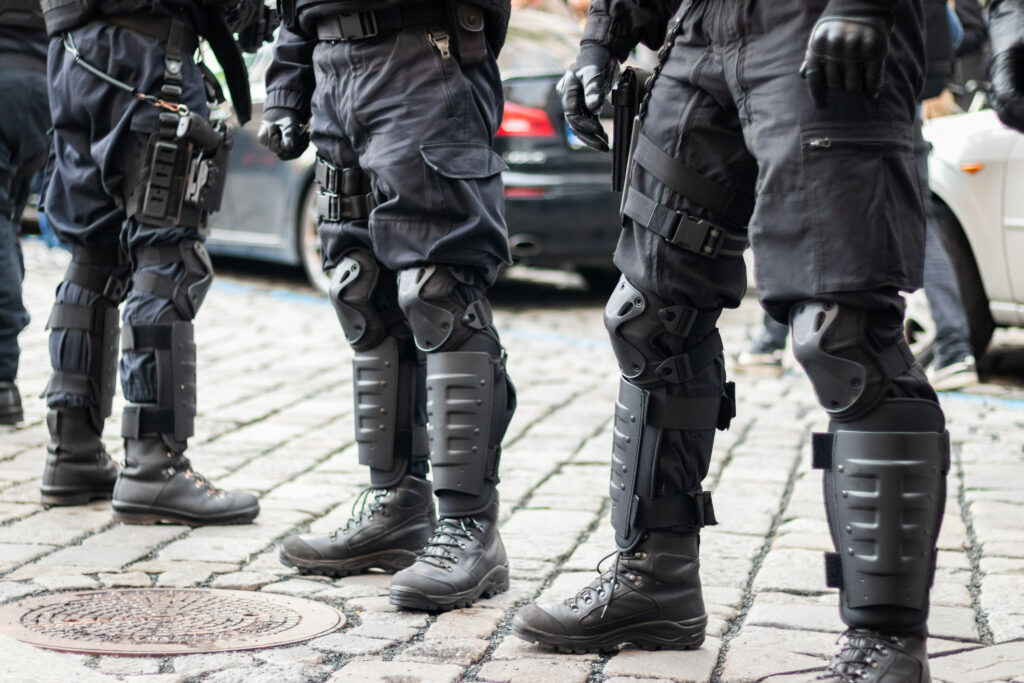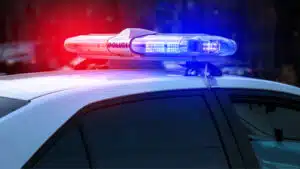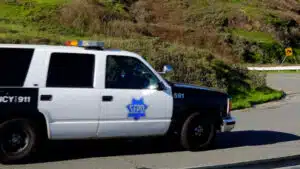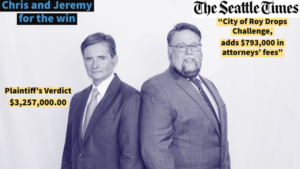Written by: Christopher B. Dolan and Allison L. Stone
As Black Lives Matter protests continue at the Mark O. Hatfield Federal Courthouse and Multnomah County Justice Center, a police headquarters in Portland, militarized federal officers are patrolling downtown Portland in unmarked vehicles and detaining people. President Trump announced that deployment of federal officers into other cities where protests continue including Chicago, Philadelphia, New York, Detroit, Baltimore, and Oakland, will follow. Therefore, it is necessary to explore the president’s power to deploy federal forces in states, and the limits on that power.
On June 26th, President Trump signed an Executive Order which directed the Departments of Justice, Homeland Security and Defense to provide, “personnel to assist with the protection of Federal monuments, memorials, statues, or property.” Federal officials state that they are in Portland protecting the Federal courthouse and justice center from vandalism. However, as federal agents with batons and combat gear patrol the streets of Portland, the legal limits of federal law enforcement must be addressed.
The Tenth Amendment of the Constitution provides that police powers are expressly reserved to the States through state and local police agencies. In other words, while the federal government has broad power to enforce the laws of the United States, the federal government generally has no role in enforcing, making arrests and/or prosecuting local crimes. This is what is commonly known as the separation of powers between the state and the federal governments. Thus, as it relates to the ongoing Black Lives Matter protests, the federal government does not have the power to police the streets or maintain order in a city if and when protests lead to violence.
With that said, a 2002 federal law that created the Department of Homeland Security says its secretary may,
“designate employees… as officers and agents for duty in connection with the protection of property owned or occupied by the federal government (…who may) carry firearms… conduct investigations on or off the property in question… and make arrests without a warrant for any offense against the United States,” with, “reasonable grounds to believe the person to be arrested has committed a felony.”
Accordingly, the federal government does have the right and authority to protect its buildings in Portland. For example, once a crime such as throwing a firebomb at federal property already has been committed, the federal authorities have probable cause to arrest them, even many blocks away from the federal property. Likewise, if a group gathering and planning to vandalize the federal property is observed, federal officers are permitted to investigate. But such power and authority is constrained.
Nevertheless, there are multiple troubling reports of federal officers arresting people who are peacefully protesting and blocks away from the federal buildings in Portland. Likewise, there is footage of officers in combat gear pulling a peaceful protester off the street into an unmarked van as well as video showing federal agents beating a non-violent Navy Veteran. Further, violent tactics by federal agents to control large crowds including use of tear gas, flash grenades and shooting nonlethal munition has left multiple people with serious, life-altering injuries.
Federal officials are defending their conduct as legal under the aforementioned federal statutes that permit federal agents to go outside the boundaries of the federal property to, “conduct investigations,” into crimes against federal property or officers. However, patrolling the streets, beating peaceful protestors, and detaining and interrogating protesters without any information that those individuals committed a federal offense goes beyond their authority.
Such conduct is problematic and concerning for multiple reasons. First, it constitutes general policing, which is a state and local function outside of federal jurisdiction and powers. Secondly, it is interfering with protests, which violates the most basic First Amendment right to free speech and the right to protest. Additionally, arrests require probable cause, meaning that a federal officer must be able to identify facts that would cause a reasonable officer to believe that the specific person arrested has committed a specific federal crime. Grabbing protesters off the streets, taking people to federal buildings for interrogation, and detaining people that may have been involved in protests at or near federal property is not probable cause. The police do not have probable cause to arrest someone just because they are standing near someone who may have committed a crime. These tactics are believed to be an abuse of executive power, intended to scare and silence protesters and interfere with the Black Lives Matter protests. If federal officers take a protester off the street in a van without probable cause, they could be sued for damages.
On July 29th, it was announced that Oregon and the federal government have come to an agreement for the staged withdrawal of some, but not all federal agents from Portland.
As Black Lives Matter protests continue, and because deployment of federal agents could be coming to your city next, it’s important to remain vigilant. If you are taken off the streets or injured while protesting and you feel that your rights have been violated, it is important to speak to a lawyer, as you may be entitled to sue the federal government.










